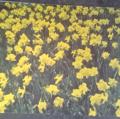A lovely comedy of class, manners and snobbery
4 steloj
A lovely comedy of class, manners and snobbery, I think City Folk And Country Folk should appeal to Jane Austen fans the world over. Khvoshchinskaya's writing, especially her dialogue, is wonderfully modern in style, sharp and vivacious, and her wickedly well observed characters are tremendous fun to spend time with. I liked that while the novel doesn't shy away from depicting social problems and the upheaval in Russia at the time, Khvoshchinskaya avoids getting bogged down in depressing detail. As Russian literature of the era goes, I think City Folk and Country Folk is refreshing breeze!
The characters particularly appealed to me because they are vivid and wonderfully alive, sometimes overstated but never grotesquely so, and women lead the narrative rather than simply being decorative adornments to men. The somewhat overwhelmed mother, Nastasya, and her irritatingly giggly but deceptively smart daughter, Olenka, stand up for themselves against repressive etiquette and …
A lovely comedy of class, manners and snobbery, I think City Folk And Country Folk should appeal to Jane Austen fans the world over. Khvoshchinskaya's writing, especially her dialogue, is wonderfully modern in style, sharp and vivacious, and her wickedly well observed characters are tremendous fun to spend time with. I liked that while the novel doesn't shy away from depicting social problems and the upheaval in Russia at the time, Khvoshchinskaya avoids getting bogged down in depressing detail. As Russian literature of the era goes, I think City Folk and Country Folk is refreshing breeze!
The characters particularly appealed to me because they are vivid and wonderfully alive, sometimes overstated but never grotesquely so, and women lead the narrative rather than simply being decorative adornments to men. The somewhat overwhelmed mother, Nastasya, and her irritatingly giggly but deceptively smart daughter, Olenka, stand up for themselves against repressive etiquette and a fabulously pompous reclusive aunt who frequently had me giggling almost as much as Olenka. The pair are precariously placed in the middle of several competing situations, each of which would see them at least lose face and I loved how Khvoshchinskaya had them navigate these tricky waters. Working-class serf peasants have just gained the right to land of their own which Nastasya must provide while at the same time an educated gentleman wishes to take up residence in her bath house and a neighbour wishes to marry Olenka off to her dolt of a protegee. The expectations of behaviour and mindless obedience based solely on perceived class and ancestry provide much of the humour, especially when these expectations are bluntly confounded.
I was surprised to discover that the new Columbia University Press edition of City Folk and Country Folk is its first publication in English. I am sure it should already have been a literary hit outside its native country! Strong heroines and the historical setting (albeit contemporary at its time of writing) are well suited to modern tastes and I believe Khvoshchinskaya's modern style should appeal to a wide readership.

